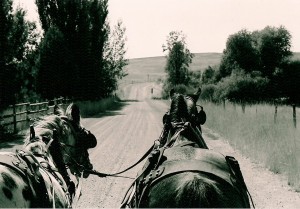
Driving my team down a quiet country road gives me a certain peace
Every now and then I hitch up a team of horses to a wagon or buggy and drive them down our country roads just for the joy of it. Driving them brings a certain satisfaction and peace that’s hard to explain. I love watching the horses pull together; hearing the rhythm of their hoof beets as they effortlessly trot down the hard-packed lane. Sometimes when everything is quiet and the weather is warm I dream of a time when life was less complex, less mechanized and slower paced. As I meditate on the idea of living a more self-reliant, sustainable lifestyle in the midst of a world that may well be entering global depression I find myself pondering the question: Could we go back? Could we live without the development of sophisticated technologies that provide energy, food and transportation to a planet that is now approaching a population of seven billion people? Could humanity learn to govern itself in such a way that people wouldn’t take advantage of weakness or desire to dominate others for personal gain? Could people be left to themselves to raise their own food, educate their children, freely worship in their local churches, or trade and barter for their daily needs?
Hearing the methodical clip clop of the horses’ feet has a way of mentally taking me into a nostalgic place that is so well captured in a Norman Rockwell or Thomas Kinkade painting. Artwork like this has a way of momentarily transporting me into the ideals of the past only to be awakened to the startling reality of our present circumstances. Paintings are one dimensional, as deep as the oil on a canvas, but real life in the 21st century is multilayered with dimensions more complex than anyone can comprehend. We have come to a place where solving one problem creates half a dozen unexpected others. It is much like trying to make an offensive move on a giant chess board only to discover ourselves in the crossfire of multiple checkmates. For example, we turn American corn into fuel with the anticipation of becoming less dependent on foreign oil only to discover that global food prices escalate and world hunger soars. We stimulate our crops with chemical fertilizers and pesticides striving for higher yields and discover that we are aiding in the eradication of the honey bees that pollinate them.
It is clear that we can’t go back – but we must move ahead with great caution. We can and should glean from the good things of the past in the effort of recapturing the skills that have served us well; things like locally growing food in more organic ways, canning and preserving foods in season so as to be less dependent on commercial production in the off season. Recapturing skills of sustainability from days gone by would be a great help; though we must also realize the past mistakes and lack of foresight that have brought us to where we are today.
Now we find ourselves at a crossroads, at a place of stalemate where no one is confident about the right road to take. It has become clear that politics and human reasoning can’t solve the escalating crisis we now face. Bipartisanship robs unity and greed undermines the efforts of our good intentions. If we underrate God’s ability to give divine direction, we forgo his intervention and blessing. Many evangelicals believe that God is done with humanity, and the world is winding down.
It is my conviction that as bad as things may seem, God is not finished with human existence on this earth. He said in the book of Jeremiah, “For I know the plans I have for you,’ declares the LORD, ‘plans to prosper you and not to harm you, plans to give you hope and a future.” I believe there are answers for those who will ask with sincere hearts and pure motives – for those who care about suffering humanity and are willing to reach beyond their personal needs to the needs of others. This is a time of opportunity for those who believe this. There has never been a greater time to serve.

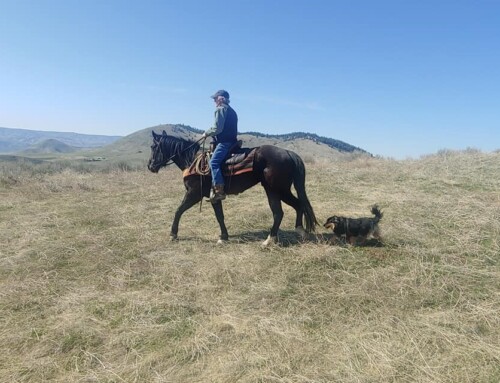
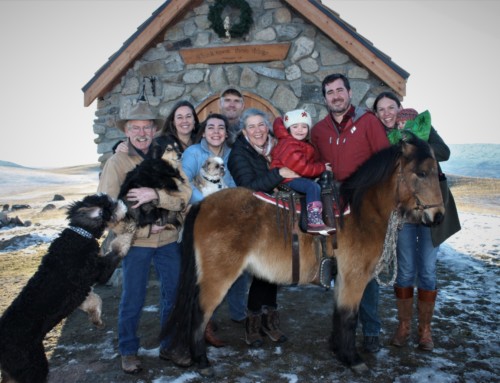
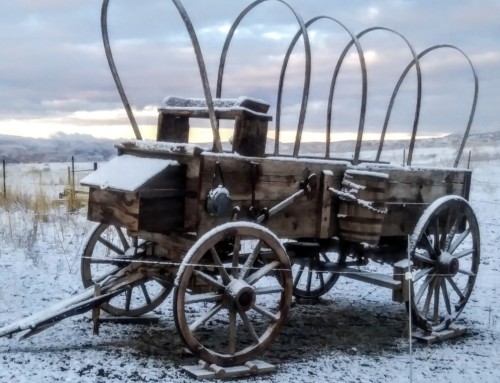
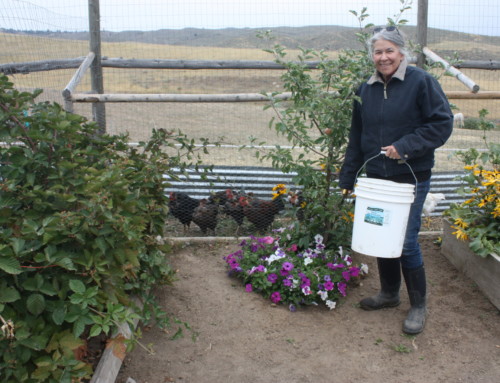

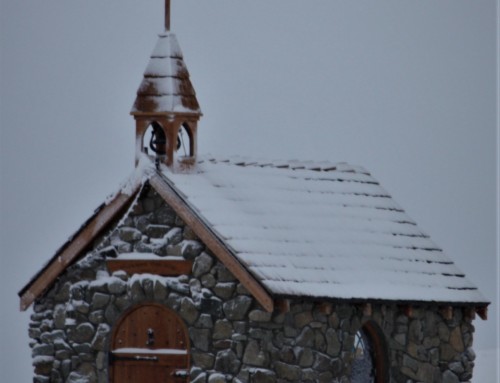
Leave A Comment
You must be logged in to post a comment.